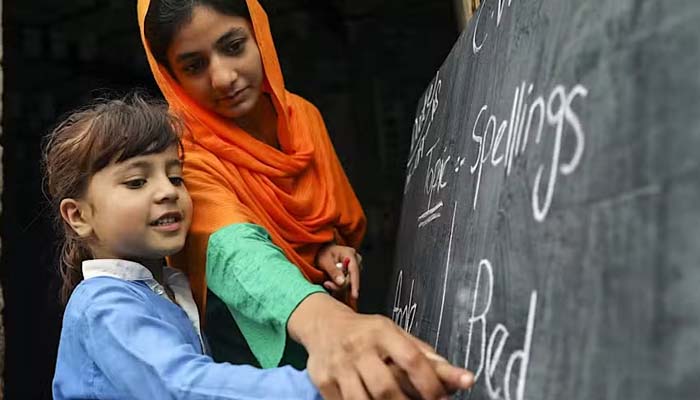LAHORE: – Punjab Chief Minister Maryam Nawaz Sharif has rolled out a sweeping series of education reforms aimed at revolutionising public schooling across the province. Chairing a high-level meeting of the School Education Department, she announced multiple initiatives including the launch of Punjab’s first school transport system, “Montessori Schools on Wheels”, and an ambitious infrastructure and digital education upgrade.
The chief minister directed authorities to devise a comprehensive plan for a structured school van service for government schools, particularly targeting remote and underserved regions. The Montessori Schools on Wheels initiative will bring early education directly to the doorstep of children in distant areas, significantly improving access to learning.
Boosting Quality and Recognition
As part of the quality enhancement agenda, CM Maryam also approved the “School and Teacher of the Month” award scheme. Educators and institutions will be evaluated based on discipline, academic performance, teaching standards, laboratory facilities, and overall impact.
“Our mission is to make public schools in Punjab better than even the top private institutions,” the chief minister asserted during the meeting.
Record Growth Through Public-Private Partnership
Punjab Education Minister Rana Sikandar Hayat reported remarkable progress under the province’s school outsourcing model, which has led to a 99% increase in student enrolment and a 114% rise in teaching staff. In just 16 months, the initiative has created over 60,000 jobs and enrolled 1.3 million students, making it the world’s largest education-based public-private partnership.
With over 40,000 applications received for 5,700 outsourced schools, the government now plans to add 10,500 more schools to the programme in the next phase.
Infrastructure and Facilities Upgrade
The government has also made major strides in improving physical infrastructure in public schools:
-
413 new classrooms built
-
5,000+ classrooms renovated
-
2,887 school roofs repaired
-
254,000 sq. metres of boundary walls constructed
-
50+ schools shifted to solar energy
-
Provision of 1,643 water tanks, 5,830 coolers, and 9,303 blackboards
Focus on Early Learning and Nutrition
In a major push for early childhood education, 10,000 classrooms have already been upgraded for Early Childhood Care and Education (ECCE). Additionally, in select districts like Faisalabad, midday meals are being served in outsourced schools through community-led models.
The upcoming School Meal Programme, launching in districts including Dera Ghazi Khan, Layyah, Lodhran, Bhakkar, Mianwali, and Bahawalnagar, will provide milk, energy bars, biscuits, and other nutritional support to schoolchildren.
Digital and Technical Education Drive
The government is introducing PEEF Tech Schools as part of a pilot project aimed at boosting technical education, with plans to scale it across rural areas. Meanwhile, an English Conversation Programme—aligned with IELTS Level 4—will be implemented to benefit 300,000 students within six months.
The province is also working toward:
-
Establishing 6,000 STEM and science labs
-
Continuing Google digital training for teachers and students
-
Completing 400+ toilet blocks for girls’ schools
-
Enhancing school management through staff rationalisation
Future Outlook
The Nawaz Sharif Centre of Excellence will expand its intake from 240 to 1,500 students, symbolising Punjab’s commitment to cultivating academic excellence.
Chief Minister Maryam Nawaz concluded the meeting by emphasizing uniform school entrances across the province to create a welcoming, modern atmosphere for students and parents alike.
These far-reaching reforms signal a bold vision to raise the standard of public education in Punjab, ensuring every child has access to quality, equitable, and future-ready learning.




Comments are closed, but trackbacks and pingbacks are open.